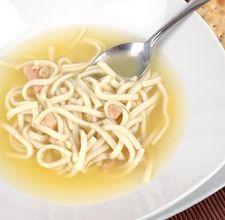MSG or monosodium glutamate is widely used in many food choices including meals at restaurants, snacks, microwaveable dinners, especially in instant noodles. Even if the usage of food additive products like Ajinomoto are practiced into a minimum, every individual in the world will still have a taste of it as it is present in fish, chicken, beef, pork, tomatoes, onions, mushrooms, leeks, cabbages, mushrooms, and in dairy products like milk and cheese. To confirm this claim also, comparison of glutamates found in MSG and those glutamates found in crops and produce are 100% identical. This indicates in summary that use of this savory flavor enhancer is safe to use.
There have been worries that MSG is attributed to so many diseases such as obesity, arthritis, rheumatism, fibromyalgia, Alzheimer’s disease, memory loss, and more. All of these have been attributed beginning from the “Chinese Restaurant Syndrome”, which was reported and shared by Robert Ho Man Kwok after ate in an American-Chinese meal, and experienced the MSG symptom complex. He had tasted wine in cooking, sodium, and glutamate seasoning, but the focus was only on monosodium glutamate and disregarded other factors. Since then, the umami food additive has been the subject of research for so many years, and was questioned since its founding in 1909.
In as early as 1950, the Joint Expert Committee on Food Additives (JEFCA) has been created by the Food and Agricultural Organization (FAO) along with the World Health Organization (WHO) in addressing the rising number of countries using processed foods. In 1970, 1973, and 1987, the International Programme on Chemical Safety has published a report “Toxicological Evaluation on Certain Food Additives” has placed Monosodium Glutamate in the “Acceptable Daily Intake (ADI) not specified” category, not indicating any risks in minimal intake. After the said evaluation, Commission of the European Communities also issued a report in 1991 of the same ADI result. The American Institute of Nutrition also marked ADI for MSG in 1995, even backed up by the Food Standards Australia New Zealand in 2002. All of these groups have done the research independently, proving that Monosodium Glutamate is still safe to use today.
